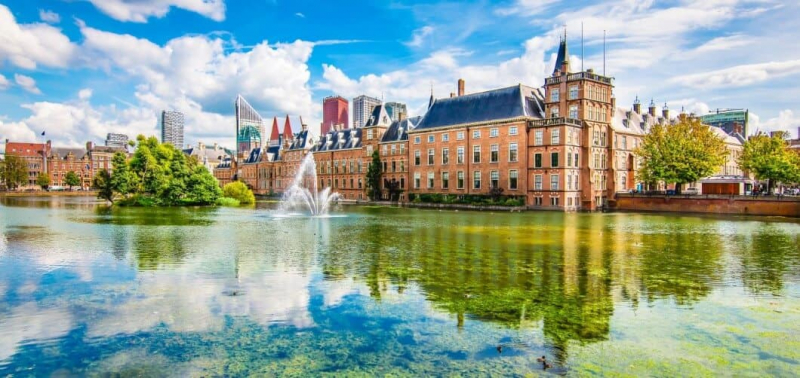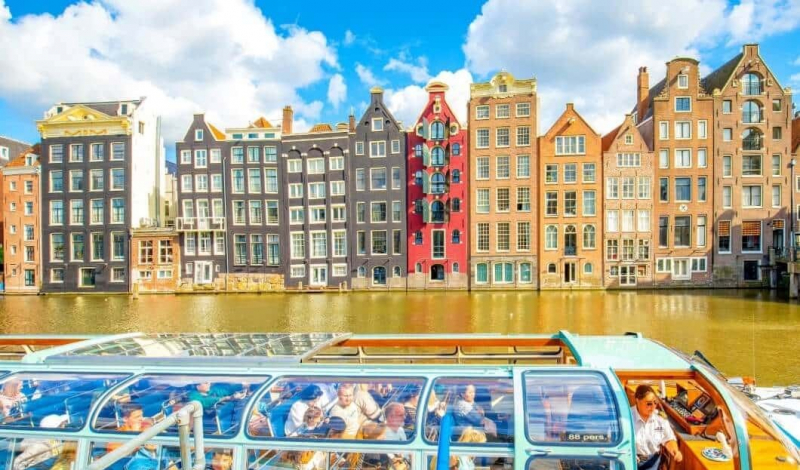Word on the street is that the Netherlands is banking on a big payout from hiking VAT on hotels and holiday parks. However, the economists are waving red flags. In January 2026 the VAT should jump from 9% to a hefty 21%. It might just backfire, taking a chunk out of Dutch tourism, costing jobs, and even shortchanging the government itself. ABN AMRO’s analysis isn’t pulling any punches, suggesting the supposed gains are a mirage, warning this policy could leave the tulip fields deserted.
Fiscal Fantasy
The Dutch cabinet’s logic looked clear enough: bump the VAT to 21% on all overnight spots—hotels, hostels, you name it—and pocket €1.2 billion each year, roughly €910 million from hotels and €302 million from the rest. But ABN AMRO, after digging into Central Bureau of Statistics (CBS) numbers, is calling their bluff. Turns out, only about a third (34.8%) of hotel income even falls under the higher VAT, since business types (who get VAT back) and extra spending like meals aren’t fully taxed. The real take? Maybe €285 million—if hotels don’t slash prices to compete.
And that’s not the worst of it. Profits could take a serious beating. Hotels in the Netherlands barely made €571 million in 2022; after the VAT jump, many might actually lose money, wiping out €147 million in corporate tax money. Stef Driessen, ABN AMRO’s go-to guy for hotels and leisure, is pretty blunt: “This means a €147 million hit for the government, leaving hotels struggling to invest in green upgrades or better work situations.” The upshot? Lost taxes from suppliers and related businesses might cancel out the VAT gains, leaving the treasury worse off than before.
Goodbye Germans, Hello Border Blues
The pain won’t just be on paper—it could mean empty rooms all around. ABN AMRO thinks we could see a 6.75% dip in hotel stays if owners try to eat some of the cost. But Dutch tourism experts are saying it could be worse: maybe a third of foreign visitors, especially budget-conscious Germans and Belgians, might head elsewhere for cheaper options. That adds up to a €511 million VAT loss from tourists not spending their money.
Click here to preview your posts with PRO themes ››
Even Dutch travelers are eyeing the exits—why splurge on a Zeeland bungalow when Belgium’s VAT is only 6%? The Koninklijke Horeca Nederland (KHN) restaurant group is worried about a potential 30% drop in overnight stays, making things even worse. Border areas like Limburg, Gelderland, and Zeeland could be hit hard: tourist taxes dry up, hotel values drop, and property taxes follow. Driessen makes the point: “The government seems to be missing the wider economic fallout of this move.”

From Farms to Fine Dining
Tourism isn’t just its own thing—it helps everyone out. This VAT could hurt restaurants, museums, shops, car rentals, and even agriculture, like flower fields and cheese tours, as fewer people visit. In parts of the eastern Netherlands, almost 10% of retail money comes from tourists; a slowdown could mean empty shelves and layoffs.
Hotel owners, already struggling with high energy costs, wages, and inflation, are worried about going under. “The industry is barely recovering from the corona mess and is now facing another charge that will put a lot of pressure on them,” Driessen says. Unions, trade groups, and banks are speaking out, calling this policy a way to price the Netherlands out of the tourism game.
Rethink or Risk Ruin?
ABN AMRO’s take is clear: this VAT plan will “do real damage to the Dutch tourism and economy.” With countries like Germany and Belgium offering cheaper options nearby, the Netherlands risks getting left behind in the travel market. As 2026 gets closer, more voices are joining in—industry bigwigs are asking Brussels and The Hague to take a second look. Will they change course to save the €20 billion tourism industry, or will they push ahead? Is the nation wagering its economic future on risky policies? Currently, alarms are sounding, yet the government seems to proceed—dangerously close to a potential crisis.


